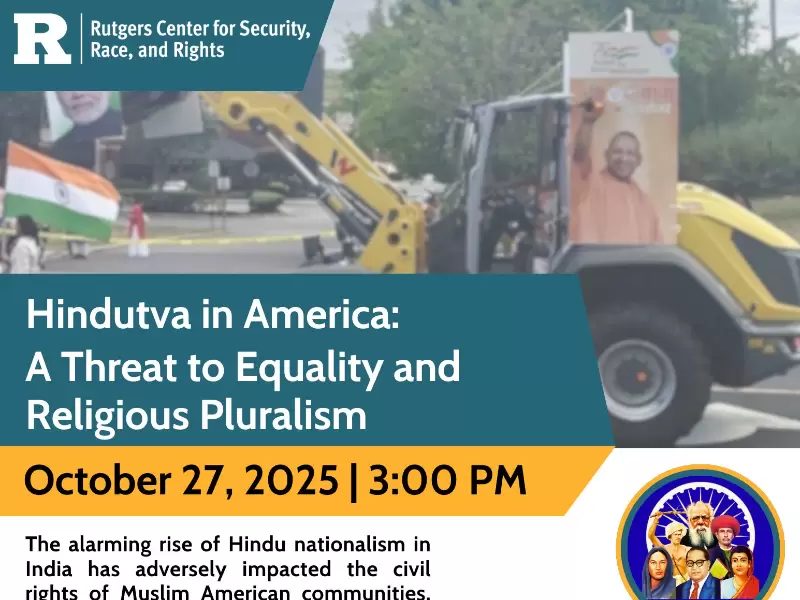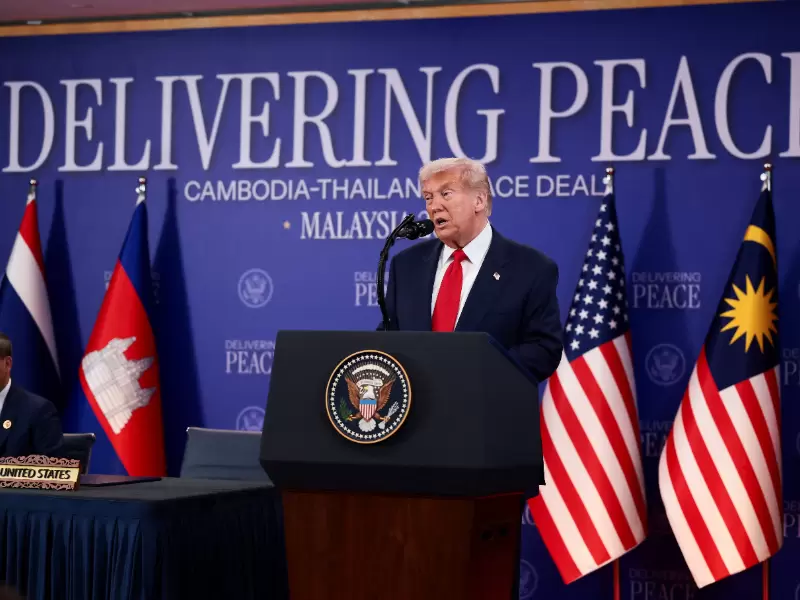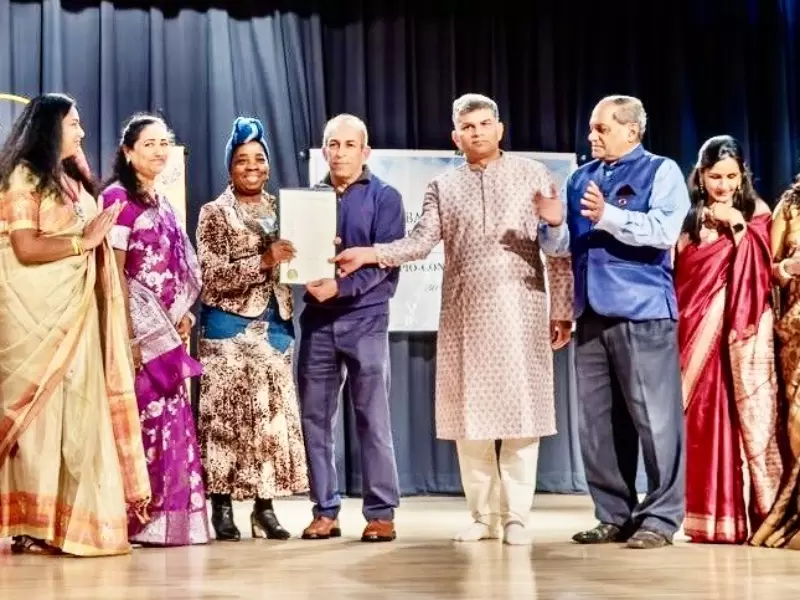Rutgers University’s Academic Freedom Becoming Religious Persecution Against Hindutva
From the 2021 Dismantling Global Hindutva Conference to the recently released Hindutva in America report, and now a follow-up conference planned for October 27, Rutgers has repeatedly positioned itself at the center of controversy.
 The Rutgers event poster. / Rutgers
The Rutgers event poster. / Rutgers
Rutgers University, one of America’s leading public institutions, is again facing scrutiny for what many Hindu students and community groups describe as a persistent pattern of anti-Hindu bias disguised as “academic freedom.” The Hindu advocacy group, Coalition of Hindus in North America (CoHNA), deserves due credit for raising awareness and concerns about Rutgers' pattern of anti-Hindu bias.
From the 2021 Dismantling Global Hindutva Conference to the recently released Hindutva in America report, and now a follow-up conference planned for October 27, Rutgers has repeatedly positioned itself at the center of controversy over its portrayal of Hinduism and those who identify with it.
ALSO READ: US lawmakers urge Rutgers to reconsider controversial Hindutva event
These initiatives, associated with Professor Audrey Truschke, have consistently framed Hindutva—and by extension, Hindu identity itself—as inherently violent, misogynistic, or extremist. Truschke’s own public comments have drawn widespread criticism. She has referred to Bhagwan Ram, revered across the Hindu world, as a “misogynistic pig.” She suggested that the Bhagavad Gita “endorses mass slaughter,” and described Jai Shri Ram as a “terror cry.” Such remarks go far beyond scholarly interpretation and enter the realm of derision toward a living faith tradition followed by more than a billion people.
When a university professor publicly ridicules sacred figures and texts, it sends a signal to Hindu students that their beliefs are unwelcome in the very spaces that claim to champion inclusion. Many Hindu and Indian students at Rutgers now report feeling intimidated to express their faith openly. Some avoid wearing traditional symbols or participating in cultural activities, fearing they will be labeled “Hindutva extremists.” Student groups such as the Hindu Student Council (HSC) have been targeted with accusations of “nationalism” merely for celebrating Diwali or promoting interfaith dialogue.
This stigmatization reflects a deeper problem: the deliberate attempt to separate Hindutva from Hinduism and vilify one while claiming to respect the other. The distinction is often rhetorical. Hindutva literally means “the essence of being Hindu,” a cultural identity inseparable from the broader religious tradition. To attack one is, in effect, to demean the other. There is no Hindutva without Hinduism. The use of one term to mask hostility toward the other is intellectually dishonest.
The controversy has now reached Washington. On October 25, four U.S. Representatives, Rich McCormick, Shree Thanedar, Suhas Subramanyam, and Stan Bishop, sent a bipartisan letter to Rutgers University. They expressed concern that its Hindutva in America event “appears politically motivated” and could foster hostility toward Hindu students. The letter urged Rutgers to protect academic freedom without enabling discrimination. It is rare for members of Congress to weigh in on university programming, underscoring the seriousness of the concerns raised.
The intervention by lawmakers also brings into focus Rutgers’ legal obligations as a publicly funded university. Under Title VI of the Civil Rights Act, institutions receiving federal funds are prohibited from discriminating based on race, color, or national origin, including cases where religion and ethnicity intersect. If taxpayer dollars are being used to finance programs that consistently stereotype or malign a single faith, Rutgers could face legitimate questions about compliance with federal non-discrimination standards.
No community is asking Rutgers to suppress scholarly inquiry. Hindu students, faculty, and organizations simply seek parity in respect. The author, an academic himself for more than four decades, knows it too well that Academic freedom is sacrosanct. However, it cannot and must not serve as a shield for religious denigration. The same moral and institutional safeguards that protect against antisemitism or Islamophobia must extend to Hinduphobia as well.
Rutgers should take this moment to reflect. It must reaffirm its commitment to religious neutrality and establish mechanisms that allow Hindu students to voice concerns without fear of reprisal.
If universities are to remain credible spaces of learning, they must protect intellectual diversity without crossing into ideological persecution. Rutgers’ repeated indulgence of anti-Hindu narratives not only damages its reputation but erodes the trust of a large and vibrant diaspora community that has long supported American higher education.
In the end, true academic freedom flourishes only when accompanied by mutual respect. Rutgers University must decide whether it wishes to nurture that freedom or continue down a path where “academic discourse” becomes indistinguishable from religious prejudice.
The author is a Ph.D. physicist from IIT Roorkee. He has served in academia as a faculty member and researcher and held various leadership roles across universities. He also worked as a Policy Analyst at the White House Office of Science and Technology Policy.
(The views and opinions expressed in this article are those of the author and do not Necessarily reflect the official policy or position of India Abroad)
ADVERTISEMENT
ADVERTISEMENT
E Paper
Video



 Vijendra Agarwal
Vijendra Agarwal














Comments
Start the conversation
Become a member of New India Abroad to start commenting.
Sign Up Now
Already have an account? Login